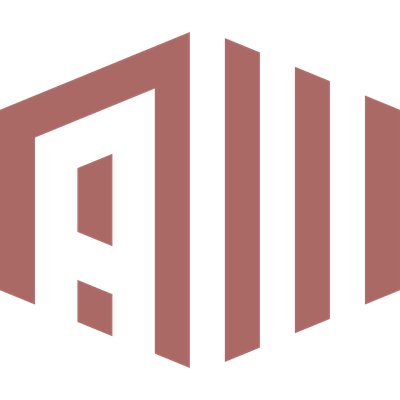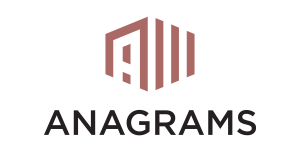We've got 5 anagrams for kiblah »
Any good anagrams for kiblah?
This page list all the various possible anagrams for the word kiblah. Use it for solving word puzzles, scrambles and for writing poetry, lyrics for your song or coming up with rap verses.
- The qibla (Arabic: قِبْلَة, romanized: qiblah, lit. 'direction') is the direction towards the Kaaba in the Sacred Mosque in Mecca, which is used by Muslims in various religious contexts, particularly the direction of prayer for the salah. In Islam, the Kaaba is believed to be a sacred site built by prophets Abraham and Ishmael, and that its use as the qibla was ordained by Allah in several verses of the Quran revealed to Muhammad in the second Hijri year. Prior to this revelation, Muhammad and his followers in Medina faced Jerusalem for prayers. Most mosques contain a mihrab (a wall niche) that indicates the direction of the qibla. The qibla is also the direction for entering the ihram (sacred state for the hajj pilgrimage); the direction to which animals are turned during dhabihah (Islamic slaughter); the recommended direction to make dua (supplications); the direction to avoid when relieving oneself or spitting; and the direction to which the deceased are aligned when buried. The qibla may be observed facing the Kaaba accurately (ayn al-ka'bah) or facing in the general direction (jihat al-ka'bah). Most Islamic scholars consider that jihat al-ka'bah is acceptable if the more precise ayn al-ka'bah cannot be ascertained. The most common technical definition used by Muslim astronomers for a location is the direction of the great circle—in the Earth's sphere—passing through the location and the Kaaba. This is the direction of the shortest possible path from a place to the Kaaba, and allows the exact calculation (hisab) of the qibla using a spherical trigonometric formula that takes the coordinates of a location and of the Kaaba as inputs (see formula below). The method is applied to develop mobile applications and websites for Muslims, and to compile qibla tables used in instruments such as the qibla compass. The qibla can also be determined at a location by observing the shadow of a vertical rod on the twice-yearly occasions when the sun is directly overhead in Mecca—on 27 and 28 May at 12:18 Saudi Arabia Standard Time (09:18 UTC), and on 15 and 16 July at 12:27 SAST (09:27 UTC). Before the development of astronomy in the Islamic world, Muslims used traditional methods to determine the qibla. These methods included facing the direction that the companions of Muhammad had used when in the same place; using the setting and rising points of celestial objects; using the direction of the wind; or using due south, which was Muhammad's qibla in Medina. Early Islamic astronomy was built on its Indian and Greek counterparts, especially the works of Ptolemy, and soon Muslim astronomers developed methods to calculate the approximate directions of the qibla, starting from the mid-9th century. In the late 9th and 10th centuries, Muslim astronomers developed methods to find the exact direction of the qibla which are equivalent to the modern formula. Initially, this "qibla of the astronomers" was used alongside various traditionally determined qiblas, resulting in much diversity in medieval Muslim cities. In addition, the accurate geographic data necessary for the astronomical methods to yield an accurate result was not available before the 18th and 19th centuries, resulting in further diversity of the qibla. Historical mosques with differing qiblas still stand today throughout the Islamic world. The spaceflight of a devout Muslim, Sheikh Muszaphar Shukor, to the International Space Station (ISS) in 2007 generated a discussion with regard to the qibla direction from low Earth orbit, prompting the Islamic authority of his home country, Malaysia, to recommend determining the qibla "based on what is possible" for the astronaut.
Translation
Find a translation for kiblah in other languages:
Select another language:
- - Select -
- 简体中文 (Chinese - Simplified)
- 繁體中文 (Chinese - Traditional)
- Español (Spanish)
- Esperanto (Esperanto)
- 日本語 (Japanese)
- Português (Portuguese)
- Deutsch (German)
- العربية (Arabic)
- Français (French)
- Русский (Russian)
- ಕನ್ನಡ (Kannada)
- 한국어 (Korean)
- עברית (Hebrew)
- Gaeilge (Irish)
- Українська (Ukrainian)
- اردو (Urdu)
- Magyar (Hungarian)
- मानक हिन्दी (Hindi)
- Indonesia (Indonesian)
- Italiano (Italian)
- தமிழ் (Tamil)
- Türkçe (Turkish)
- తెలుగు (Telugu)
- ภาษาไทย (Thai)
- Tiếng Việt (Vietnamese)
- Čeština (Czech)
- Polski (Polish)
- Bahasa Indonesia (Indonesian)
- Românește (Romanian)
- Nederlands (Dutch)
- Ελληνικά (Greek)
- Latinum (Latin)
- Svenska (Swedish)
- Dansk (Danish)
- Suomi (Finnish)
- فارسی (Persian)
- ייִדיש (Yiddish)
- հայերեն (Armenian)
- Norsk (Norwegian)
- English (English)
Citation
Use the citation below to add this anagrams to your bibliography:
Style:MLAChicagoAPA
"kiblah." Anagrams.net. STANDS4 LLC, 2025. Web. 5 Feb. 2025. <https://www.anagrams.net/kiblah>.






Discuss this kiblah anagram with the community:
Report Comment
We're doing our best to make sure our content is useful, accurate and safe.
If by any chance you spot an inappropriate comment while navigating through our website please use this form to let us know, and we'll take care of it shortly.
Attachment
You need to be logged in to favorite.
Log In